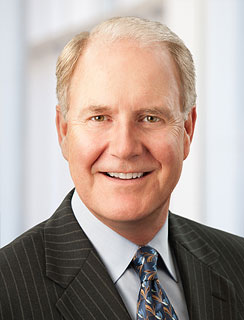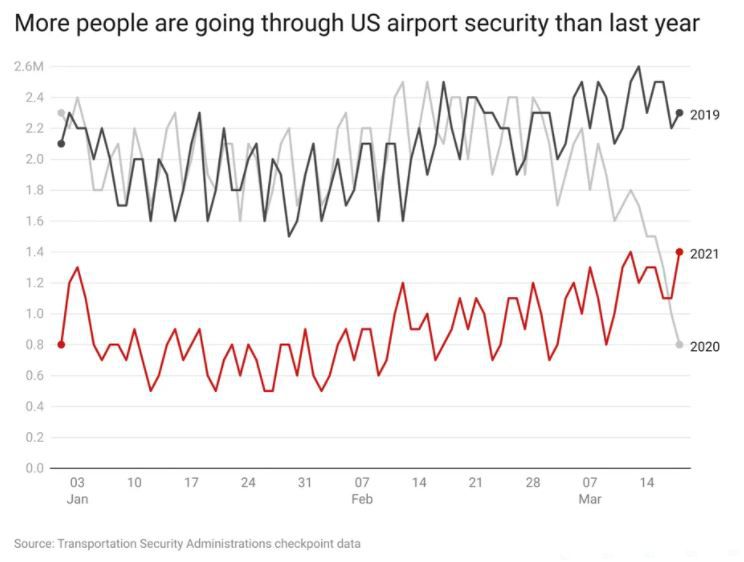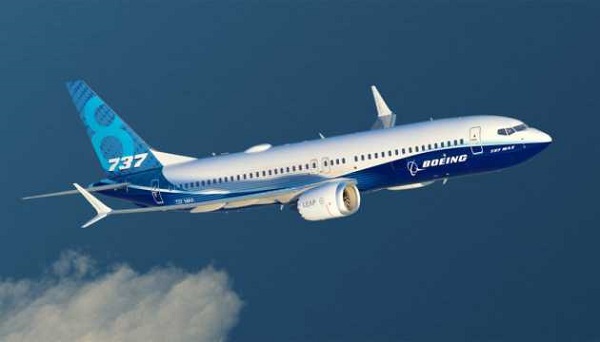Southwest CEO says business air travel is off by 90%, may take five years to recover from Covid-19 pandemic
By Stephen Hofer
Aerlex Law Group President

In an online video interview last week, Southwest Airlines Chairman and Chief Executive Officer Gary Kelly said his airline is finally beginning to see the return of consumer and leisure travelers, but that business travel on Southwest is off by 90% due to the year-long Covid-19 pandemic.
Kelly’s interview was one of a series of talks with leaders in various fields being conducted by The Washington Post called “The Path Forward,” assessing where the world is now, one year after the SAR-CoV2 coronavirus began to buffet the globe. The conversation with Kelly, conducted by Post columnist David Ignatius, was of interest to the business aviation community because of the insights the airline CEO offered about where commercial air travel is at this stage in the year-long pandemic.
Even with airline traffic beginning to rebound, Kelly said Southwest’s business is still off by 65% when compared to February 2020, the month before the coronavirus forced a major shutdown of the United States economy and, in particular, the travel industry.
Notwithstanding the devastation Covid-19 has wreaked on the aviation industry, Kelly said he thought Southwest has “a chance at breaking even” by June because of consumers’ tremendous pent-up demand to begin flying for leisure again, but he was much more dubious when asked about the return of business travelers who, in normal times, would be filling 30 to 40% of Southwest’s seats.
“We have two large segments of traffic – business travelers and consumers [and] right now we’re very dependent upon consumers to fill up our airplanes,” Kelley explained. “Our hope is that by the time we get to June, where you’ve had much of the population having had access to vaccinations, that we’ve got a chance at breaking even. But I don’t expect business travel to recover in that time period. If you look at past recessions, it’s taken five years on average for business travel to recover to pre-recession levels. That would be my guess this time. And knowing how habits have changed in this virtual world, it could be much longer than that.”
“This [the pandemic] is a big event,” the airline boss continued. “It has accelerated the trend of working remotely, working virtually.” Indeed, Kelly acknowledged that “the vast majority of our [Southwest] call center employees are now working from home . . . [and] I don’t see us going back and having everyone back in the call centers even after the pandemic ends.” Kelly predicted there will be more remote work, more flexibility for employees and more real estate sharing with home offices across many industries.
 At the same time, however, Kelly said he doesn’t think that people want to do business virtually to the point that there will be little or no business travel. Indeed, Kelly said, “I think business travel will eventually come roaring back,” but he admitted he could not predict to what extent business travel would recover and so, he said, the airline is looking at other opportunities. “We have engaged with global distribution systems and made it easier for big managed corporate travel to do business with Southwest.”
At the same time, however, Kelly said he doesn’t think that people want to do business virtually to the point that there will be little or no business travel. Indeed, Kelly said, “I think business travel will eventually come roaring back,” but he admitted he could not predict to what extent business travel would recover and so, he said, the airline is looking at other opportunities. “We have engaged with global distribution systems and made it easier for big managed corporate travel to do business with Southwest.”
The Post’s interviewer, Mr. Iganatius, noted that globally the airline industry suffered a net loss of $84 billion in 2020, the worst year in the industry’s history. Kelly agreed. “It’s easily the worst thing that’s happened to post-war babies in my lifetime.” Kelly said governmental intervention such as the 2020 CARES Act and the 2021 American Relief Act has been essential to keeping the airline industry afloat. “Absent that kind of support and that kind of liquidity, our country would be in a depression, because the financial markets were closed.” Now with the rollout of coronavirus vaccines, Kelley said “the pandemic will end sometime in 2021 [and] we’ll break even at least and hopefully have some positive cash flow sometime in 2021.”
When asked whether he thought the $1.9 trillion price tag for the Biden Administration’s new relief plan was too much and risked over-priming the pump, Kelley said, “I don’t think so. I see it as an asymmetrical risk. This is the worst environment we’ve had in three or four generations. There’s a tremendous amount of risk. I think keeping people employed and just getting us through the trough of the pandemic so that we can all live to fight another day is absolutely critical. I think doing too little in a scenario like this has a far greater disastrous potential outcome.”
 Kelly said he was proud that Southwest, which is celebrating its 50th anniversary, made it through 2020 and 2021 so far without cutting employee hours or payrates or furloughing any of its staff, but he said that would have been impossible without the various payroll support programs enacted by the federal government. “Our federal leaders have done a great job supporting our industry,” and with that assistance, Kelly said he was committed to keeping his promise that there will be no job losses or salary reductions at Southwest.
Kelly said he was proud that Southwest, which is celebrating its 50th anniversary, made it through 2020 and 2021 so far without cutting employee hours or payrates or furloughing any of its staff, but he said that would have been impossible without the various payroll support programs enacted by the federal government. “Our federal leaders have done a great job supporting our industry,” and with that assistance, Kelly said he was committed to keeping his promise that there will be no job losses or salary reductions at Southwest.
Kelly was asked about the issue of public health concerns for travelers on airplanes and, specifically, masks. Noting that Texas Governor Greg Abbott had lifted the mask mandate in the same state where Southwest has its headquarters in Dallas, Kelly was asked what his airline’s policy would be going forward. “Our number-one concern is how can we continue to operate and serve our customers and keep our employees and our customers safe. We’ve done our best to follow CDC (U.S. Center for Disease Control) guidelines. When CDC came out and said masks are important – which is common sense to me, it’s intuitive – we imposed that. We require it of our employees and of our customers. Now you have a new administration and President Biden issued an executive order mandating mask on flights and [our policy] has not changed. I’m a huge believer in wearing masks. I think every individual needs to do his or her part to crush this pandemic. I don’t think it’s too much to ask of people.”
Kelly said the end of compulsory masking onboard Southwest flights was difficult to predict, but he thinks it will continue at the very least for several more months and very possibly might be required into 2022.
 Finally, Kelly was asked about Southwest’s decision to return the Boeing 737 Max airliner to service last week two years after the airplane was grounded worldwide after two fatal crashes caused by malfunctions in the plane’s flight control systems. Kelly defended the decision, noting that the Federal Aviation Administration had lifted its grounding order after Boeing made design modifications and he said, “The Max is a great airplane. It’s 15% more fuel efficient, 40% quieter.” The CEO also noted that the 737 is the only airplane that Southwest operates and said the airline’s pilots are all experts in its operation.
Finally, Kelly was asked about Southwest’s decision to return the Boeing 737 Max airliner to service last week two years after the airplane was grounded worldwide after two fatal crashes caused by malfunctions in the plane’s flight control systems. Kelly defended the decision, noting that the Federal Aviation Administration had lifted its grounding order after Boeing made design modifications and he said, “The Max is a great airplane. It’s 15% more fuel efficient, 40% quieter.” The CEO also noted that the 737 is the only airplane that Southwest operates and said the airline’s pilots are all experts in its operation.
“It [the 737 Max] has been heavily scrutinized. It’s the most reviewed and scrutinized airplane in the history of aviation,” Kelly continued. He said Southwest made the decision to relaunch the Max because Boeing had made a “significant software change to the flight control system” and some additional changes in pilot operating procedures. “I respect the fact that smart people at Boeing and the FAA and Southwest and the rest of the industry tackled the problem and got it solved and the airplane is back in service.”
